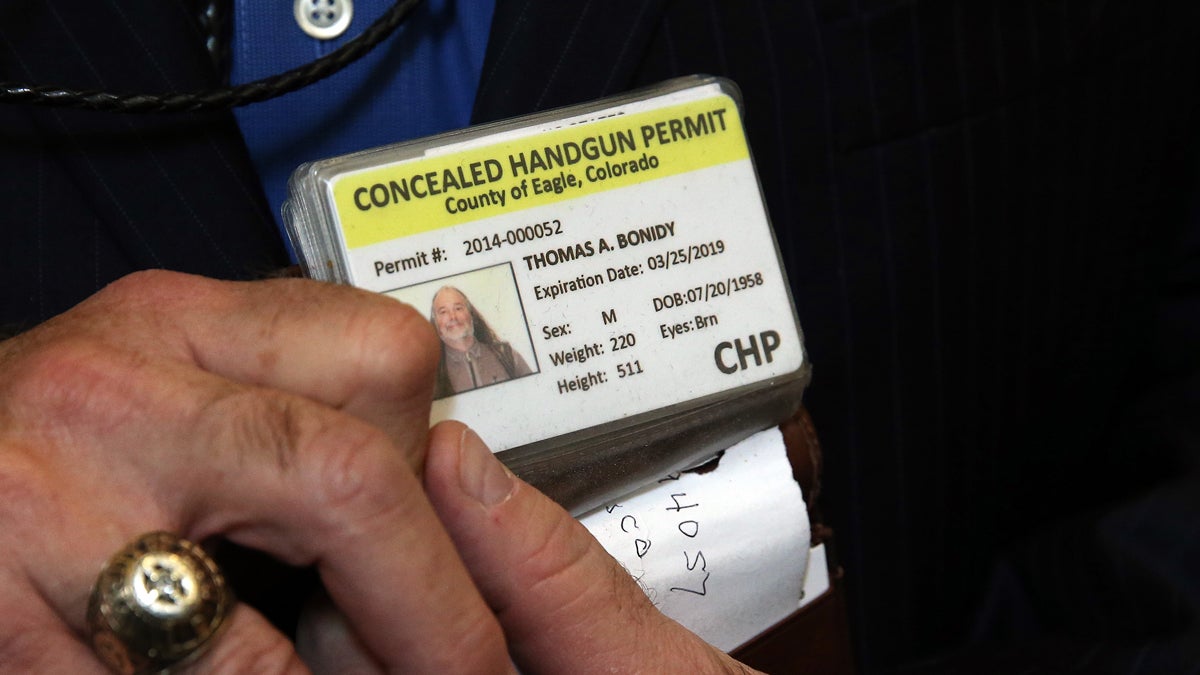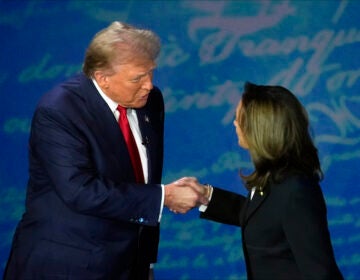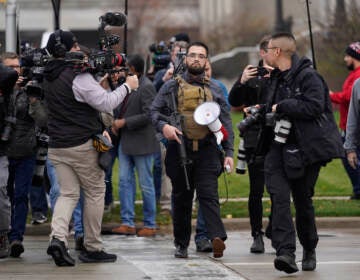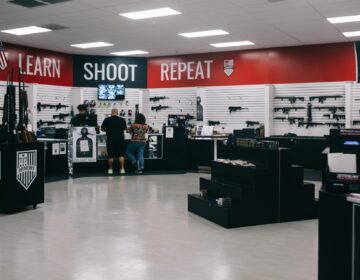Federal concealed carry reciprocity is wrong for Pennsylvania and the country

A Colorado man shows his concealed gun license. AP Photo/Brennan Linsley, file)
I was heartened to hear U.S. Rep. Charles Dent, R-Allentown, say he believes in the Second Amendment at his recent Lehigh Valley town hall.
I believe in it too.
It states, in its entirety: A well regulated Militia, being necessary to the security of a free State, the right of the people to keep and bear Arms, shall not be infringed.
I was also glad to hear him say that he supports “reasonable restrictions” to gun ownership. So do I.
However, when it comes to determining whether restrictions on gun ownership are “reasonable,” I believe that the right to safety deserves consideration at least equal to the right to own firearms.
The weighing of those rights is why all 50 states have laws restricting gun sales and permits.
Now a bill introduced earlier this year in the U.S. House, called the Concealed Carry Reciprocity Act of 2017, would nullify state gun safety laws pertaining to concealed carry (carrying a hidden — presumably loaded — gun on one’s person). Representative Dent is a co-sponsor.
Dent is dead wrong on this one. Concealed carry reciprocity is dangerous.
Federal concealed carry reciprocity forces states to reciprocate other states’ concealed carry permit laws — no matter how lax or ineffective. Its effect will be to make the least restrictive state’s concealed carry permit criteria the law of the land.
An explosion in the number of people interested in carrying concealed weapons has occurred in recent years, due to the belief that a “good guy” with a gun can deter crime or violence. The facts simply do not support this notion. A recent study that analyzed data on number of concealed handgun licenses issued from 1998 to 2010 and arrests in every county in Florida, Michigan, Pennsylvania, and Texas found no significant effect of concealed carry laws and increases or changes in crime rates
Too often those with concealed carry permits have become threats to public safety themselves. According to the Violence Policy Center, only a tiny fraction of killings carried out by concealed carry permit holders are in self-defense. Since 2007, the group has documented 900 deaths resulting from 729 incidents involving concealed carry permit holders in 40 states and the District of Columbia. In 83 percent of the incidents, the concealed carry permit holder committed suicide (296), was convicted of a non-self-defense-related crime (235), perpetrated a murder-suicide (56), or was killed in the incident (17).
In response to this increase in interest, all 50 states have implemented laws related to concealed carry. Each state has come up with different criteria for issuing permits. Some, like Wyoming, do not require a permit at all. Others deny permit applications from individuals with a history of violent behavior, or who fail to meet other criteria meant to deter potentially dangerous individuals from being able to legally carry hidden, loaded guns.
Federal concealed carry reciprocity would override such laws — with potentially deadly consequences. For example, a Pennsylvania resident cannot currently obtain a Pennsylvania concealed carry permit if he or she has been convicted of stalking. But, if federal concealed carry reciprocity passes, a convicted stalker who resides in any one of the 49 other states could obtain a license from a state that does not prohibit concealed carry permits for stalkers and then use that license to legally carry concealed weapons in Pennsylvania.
The main argument among supporters is that the variability in state laws inconvenience law-abiding citizens who have the legal right to carry a concealed weapon in another state.
However, people are required to abide by laws related to alcohol transport and consumption that vary from state to state — despite the inconvenience. Currently, eight states have legalized the recreational use of marijuana. Should the federal government mandate that other states follow suit?
Why should guns be the exception?
Federal concealed carry reciprocity is simply an end-run around state laws. It’s a gift to gun manufacturers — for whom any gun restriction, “reasonable” or no — means fewer sales. Rep. Dent, that doesn’t make it right for Pennsylvanians or the country.
—
Lori Yeghiayan Friedman is a resident of Pennsylvania’s 15th District. She became a gun safety advocate after the Pulse night club shooting when she could no longer live with the decision to, as then-President Obama said, “actively do nothing.”
WHYY is your source for fact-based, in-depth journalism and information. As a nonprofit organization, we rely on financial support from readers like you. Please give today.




